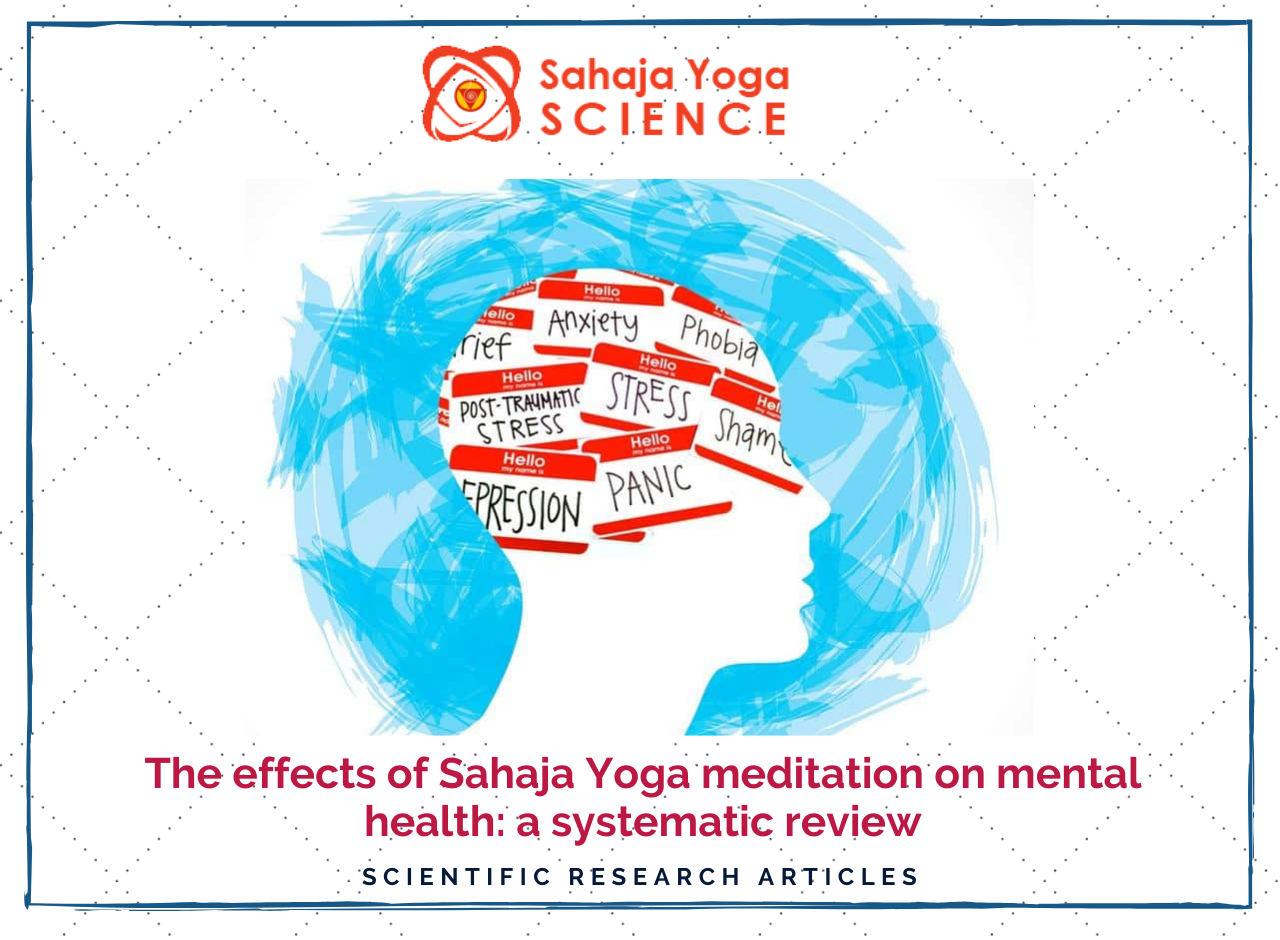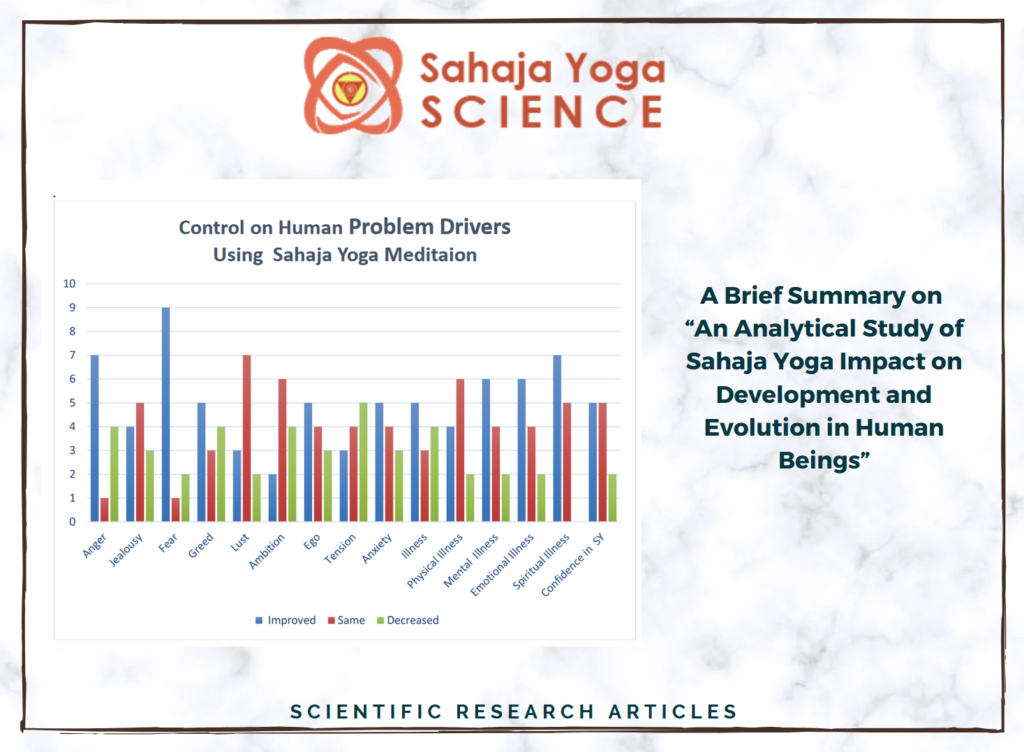Research Submitted By:
Tom Hendriks, Doctor of Psychology, Anton de Kom University, Department of Psychology
Objectives
To determine the efficacy of Sahaja Yoga (SY) meditation on mental health among clinical and healthy populations.
Methods
All publications on SY were eligible. Databases were searched up to November 2017, namely PubMed, MEDLINE (NLM), PsychINFO, and Scopus. An internet search (Google Scholar) was also conducted. The quality of the randomized controlled trails was assessed using the Cochrane Risk Assessment for Bias. The quality of cross-sectional studies, a non-randomized controlled trial and a cohort study was assessed with the Newcastle-Ottawa Quality Assessment Scale.
At first glance, SY meditation seems to have positive and significant effects on mental health. After reviewing the articles and taking the methodology and quality of the studies into account, it appears that SY is associated with reduced depression in both healthy adults, and in adults with a depressive disorder.
SY is also associated with decreased anxiety and increased subjective and psychology well-being among healthy adults. Only one study found a small effect of SY on stress. Our findings on the effects of SY on depression, anxiety, and stress are in line with previous studies on the effects of yoga on these outcomes.
For example, several meta-analyses on the effects of yoga among patients with cancer reported large reductions in distress, anxiety, and depression. A meta-analysis on the effects of yoga on patients with depressive disorders and individuals with elevated levels of depression reported moderate short-term improvements on depression and anxiety , and another meta-analysis on the effects of yoga for prenatal depression also reported significant decreases in depression .
Results
We included a total of eleven studies; four randomized controlled trials, one non-randomized controlled trial, five cross-sectional studies, and one prospective cohort study. The studies included a total of 910 participants. Significant findings were reported in relation to the following outcomes: anxiety, depression, stress, subjective well-being, and psychological well-being. Two randomized studies were rated as high quality studies, two randomized studies as low quality studies. The quality of the non-randomized trial, the cross-sectional studies and the cohort study was high. Effect sizes could not be calculated in five studies due to unclear or incomplete reporting.
Conclusions
After reviewing the articles and taking the quality of the studies into account, it appears that SY may reduce depression and possibly anxiety. In addition, the practice of SY is also associated with increased subjective wellbeing and psychological well-beng.
This research summarizes the effects of SY meditation on mental health. Our findings suggest that SY can reduce depression, anxiety, and increase subjective well-being. In addition, long-term practitioner of SY is associated with increased subjective and psychological well-being.
Read Full Article – https://www.degruyter.com/view/journals/jcim/15/3/article-20160163.xml?tab_body=fullHtml-69327





